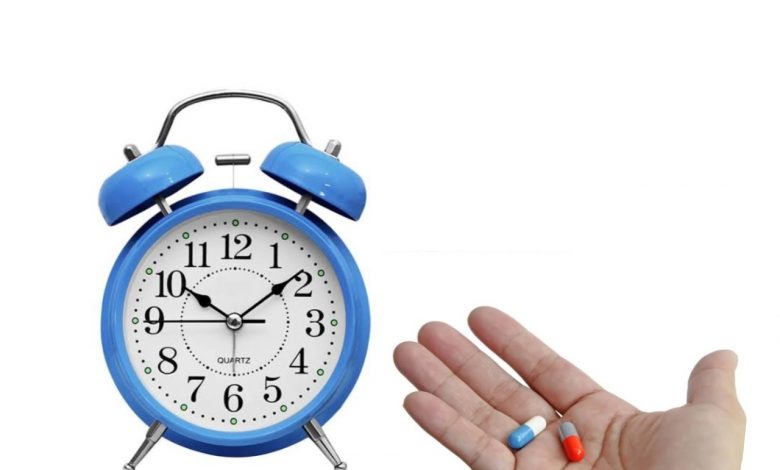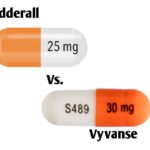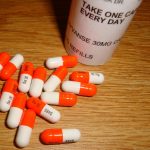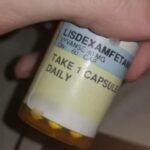How Long Does Vyvanse Stay In Your System?

What is Vyvanse?
Vyvanse is a brand of lisdexamfetamine used as part of a treatment program to control symptoms of attention deficit hyperactivity disorder (ADHD; more difficulty focusing, controlling actions, and remaining still or quiet than other people who are the same age) in adults and children.
Vyvanse is also used to treat binge eating disorder (an eating disorder characterized by periods of uncontrolled overeating). Vyvanse is in a class of medications called central nervous system stimulants. It works by changing the amounts of certain natural substances in the brain.
Vyvanse is a controlled substance, classified by the United States Drug Enforcement Administration in the Schedule II categorization of controlled substances. It requires a prescription from a physician. Stimulants like Vyvanse may often be used by physicians for off-label purposes, such as to counteract lethargy, address hypoactive delirium, or even as an aid to improve focus for individuals with neurological issues that result in cognitive problems. Because of the way that Vyvanse is metabolized in the system, it may be less likely to be used for these purposes than other stimulants.
How is Vyvanse used?
Always be sure to take Vyvanse exactly as prescribed by your doctor. Vyvanse is taken in the morning as a once-daily oral medication. Avoid afternoon or evening doses because it can interfere with your sleep. Vyvanse can be taken with or without food. Vyvanse is often started at a lower dose and increased based on your response.
Vyvanse comes in oral capsules or chewable tablets. If needed, the capsules can be opened and mixed with yogurt, water or orange juice; ask your pharmacist how to do this.
Your doctor may want to stop your Vyvanse treatment for a period of time to check your symptoms and your condition. Also, if you have kidney disease, your doctor may need to lower your dose.
Vyvanse is a controlled substance in the class of drugs known as central nervous system (CNS) stimulants. It can be abused or lead to drug dependence. Your doctor will assess the risk for abuse prior to prescribing Vyvanse and monitor you for abuse and dependence.
Keep Vyvanse in a safe place to prevent misuse, abuse or theft by others.
How Does Vyvanse Work?
Vyvanse treats ADHD and BED by increasing norepinephrine and dopamine levels, thereby altering the balance of chemicals in the brain. Norepinephrine is a stimulant, while dopamine affects the feeling of pleasure and reward. As the balance of these chemicals changes, individuals with ADHD notice an improvement in their attention spans and ability to control hyperactive behaviors. Those with BED find that they binge less frequently.
How Long Does Vyvanse Last?
Vyvanse is one of the longest-lasting stimulant medications on the market for the treatment of ADHD. Vyvanse contains the stimulant amphetamine, but also includes a compound called lysine. Because your body must absorb all of the lysine to get the entire dose of the amphetamine, Vyvanse can last for up to 14 hours. Most people find that this length of time covers the time during the day when focus is required, and they are still able to go to sleep after the medication has worn off.
In the treatment of binge eating disorder (BED), it can take up to 12 weeks for patients to show a significant reduction in their number of binge days per week. In longer studies, Vyvanse effectively controlled binge-eating disorder symptoms for at least 38 weeks.
How long does Vyvanse stay in your system for a drug test?
Vyvanse is detectable in your urine samples for up to 3 days but can last a little longer in some people. Detecting the presence of Vyvanse in blood samples is much faster. A Standard blood test will detect the presence of Vyvanse in a person’s blood sample as early as 7-8 hours after the first dose.
What are the side effects of Vyvanse?
Vyvanse may cause side effects. Tell your doctor if any of these symptoms are severe or do not go away:
• sleepiness
• dizziness
• headache
• dry mouth
• constipation
• diarrhea
• nausea
• weight loss
Some side effects can be serious. If you experience any of these symptoms, stop taking Vyvanse and call your doctor immediately or get emergency medical treatment:
• slow or difficult speech
• weakness or numbness of an arm or leg
• seizures
• hallucinating (seeing things or hearing voices that do not exist)
• believing things that are not true
• feeling unusually suspicious of others
• mood swings
• motor or verbal tics
• hives
• rash
• swelling of the eyes, face, tongue, lips, or mouth
• blurred vision or other vision problems
• paleness or blue color of fingers or toes
• numbness, pain, or sensitivity to temperature in the fingers or toes
• unexplained wounds appearing on fingers or toes
Vyvanse may cause sudden death in children and teenagers, especially children and teenagers who have heart defects or serious heart problems. This medication also may cause sudden death, heart attack or stroke in adults, especially adults who have heart defects or serious heart problems. Call your doctor right away if you or your child has any signs of heart problems while taking this medication including: chest pain, shortness of breath, or fainting. Talk to your doctor about the risks of taking this medication.
Vyvanse may slow children’s growth or weight gain. Your child’s doctor will watch his or her growth carefully. Talk to your child’s doctor if you have concerns about your child’s growth or weight gain while he or she is taking this medication. Talk to your child’s doctor about the risks of giving Vyvanse to your child.
Vyvanse may cause other side effects. Call your doctor if you have any unusual side effects.





